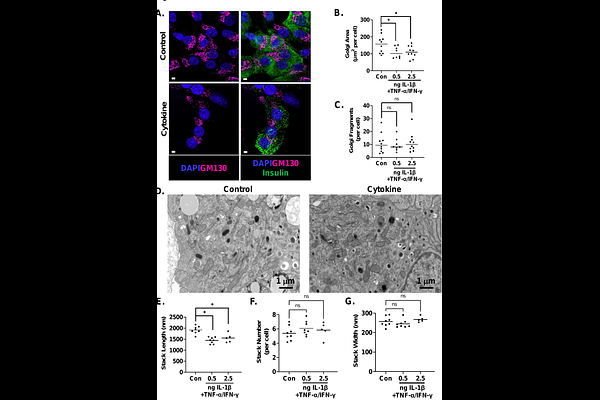Proinflammatory cytokines mediate pancreatic beta-cell specific alterations to Golgi morphology via iNOS-dependent mitochondrial inhibition

Proinflammatory cytokines mediate pancreatic beta-cell specific alterations to Golgi morphology via iNOS-dependent mitochondrial inhibition
Blom, S. E.; Behan-Bush, R. M.; Ankrum, J. A.; Yang, L.; Stephens, S. B.
AbstractType 1 diabetes (T1D) is caused by the selective autoimmune ablation of pancreatic beta-cells. Emerging evidence reveals beta-cell secretory dysfunction arises early in T1D development and may contribute to diseases etiology; however, the underlying mechanisms are not well understood. Our data reveal that proinflammatory cytokines elicit a complex change in the beta-cell Golgi structure and function. The structural modifications include Golgi compaction and loss of the inter-connecting ribbon resulting in Golgi fragmentation. Our data demonstrate that iNOS generated nitric oxide (NO) is necessary and sufficient for beta-cell Golgi re-structuring. Moreover, the unique sensitivity of the beta-cell to NO-dependent mitochondrial inhibition results in beta-cell specific Golgi alterations that are absent in other cell types, including alpha-cells. Collectively, our studies provide critical clues as to how beta-cell secretory functions are specifically impacted by cytokines and NO that may contribute to the development of beta-cell autoantigens relevant to T1D.